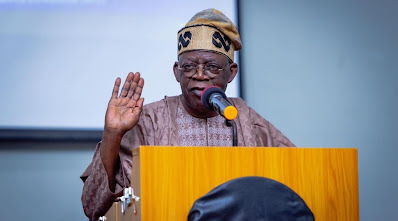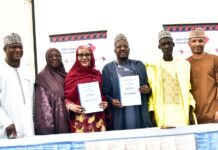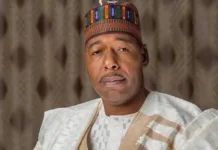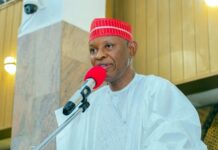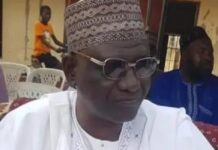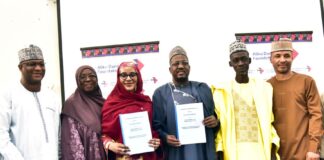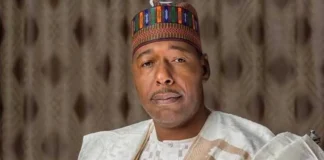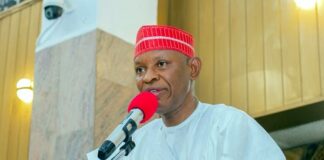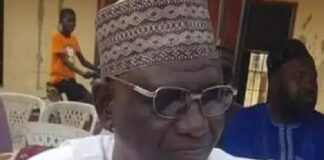The Independent National Electoral Commission Chairman and Chief Returning Officer, Professor Mahmood Yakubu at 5:01 am Wednesday, declared the presidential candidate of the All Progressives Congress, APC, Bola Ahmed Tinubu as the winner of Saturday’s Presidential election.
Tinubu was declared the winner of the election on Wednesday morning, after the completion of the collation and announcement of results from across Nigeria, which started at the national collation centre in Abuja, the nation’s capital, on Sunday and ended in the early hours of Wednesday, March 1.
Yakubu said that Tinubu scored 8,794,726; Atiku Abubakar (Peoples Democratic Party) received 6,984,520 votes; Peter Obi (Labour Party) secured 6, 101, 533 while Rabiu Kwankwaso of the (New Nigerian Peoples Party) scored 1,496,687.
Tinubu edged Atiku, a former vice president and his closest challenger, with no fewer than 1.8 million votes.
Professor Yakubu went on to declare the APC candidate as the winner of the presidential election and was returned elected “having satisfied the requirements of the law and scoring the highest numbers of votes”.
Recall, Nigeria’s main opposition parties had called for the country’s presidential election to be scrapped, alleging that the process had been manipulated.
The opposition parties led by PDP hinged their action on what they described as connivance between the APC and the INEC to rig the presidential election. The protesting parties had demanded that the electoral umpire uploaded the polling units results into the INEC Results Viewing Portal (IReV) to authenticate the presented results.
Despite appeals from the chairman of INEC to the parties to allow the process continue, the opposition party agents insisted on rejecting the results and continuation of the process.
Bola Ahmed Tinubu, Nigerian President-Elect
Born on 29th of March, 1952, the Nigerian president-elect served as the governor of Lagos State from 1999 to 2007 and Senator for Lagos West during the brief Third Republic.
Tinubu spent his early life in southwestern Nigeria and later moved to United States where he studied Accounting at Chicago State University. He returned to Nigeria in the early 1980s and was employed by Mobil Nigeria as an accountant, before entering politics as a Lagos West senatorial candidate in 1992 under the banner of the Social Democratic Party.
After Sani Abacha dissolved the Senate in 1993, Tinubu became an activist campaigning for the return of democracy as a part of the National Democratic Coalition movement. Although he was forced into exile in 1994, Tinubu returned after Abacha’s 1998 death triggered the beginning of the transition to the Fourth Republic.

